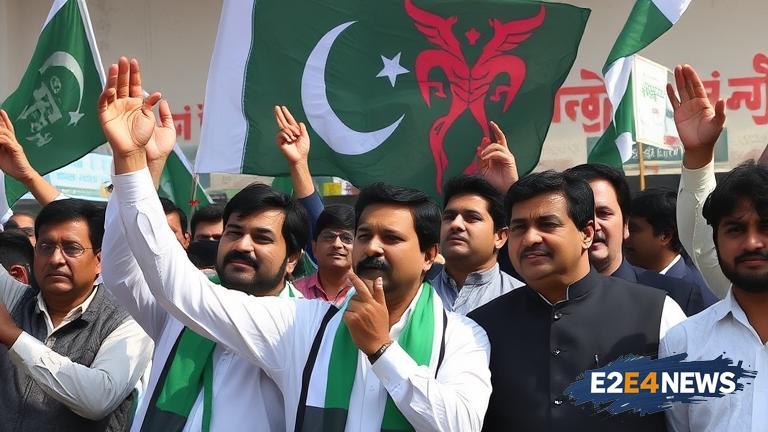The Pakistan Tehreek-i-Insaf (PTI) is currently facing a period of uncertainty as it prepares for the forthcoming by-elections. The party, led by former Prime Minister Imran Khan, is struggling to come to terms with its current situation. Despite its claims of being a major political force in the country, the PTI is facing internal conflicts and external pressures that are threatening its chances of success in the by-elections. The party’s leadership is divided on several key issues, including the selection of candidates and the campaign strategy. This division has led to a sense of uncertainty among the party’s supporters, who are unsure about the direction the party is taking. Furthermore, the PTI is also facing external pressures from other political parties, including the Pakistan Muslim League-Nawaz (PML-N) and the Pakistan Peoples Party (PPP). These parties are trying to capitalize on the PTI’s weaknesses and are launching a series of attacks on the party’s leadership. The PTI’s chances of success in the by-elections are also being threatened by the party’s own internal conflicts. The party’s leaders are struggling to come to terms with the fact that they are no longer in power and are finding it difficult to adjust to their new role as an opposition party. This has led to a sense of frustration among the party’s supporters, who are feeling disillusioned with the party’s leadership. In addition to these internal conflicts, the PTI is also facing external pressures from the establishment. The party’s leadership is being pressured to tone down its rhetoric and to avoid confrontation with the establishment. This has led to a sense of uncertainty among the party’s supporters, who are unsure about the party’s stance on key issues. The PTI’s leadership is also facing criticism from within the party, with some members questioning the party’s strategy and direction. This criticism has led to a sense of division within the party, with some members calling for a change in leadership. Despite these challenges, the PTI remains a major political force in the country. The party has a large following and is still widely popular among the masses. However, the party’s leadership needs to address the internal conflicts and external pressures that are threatening its chances of success. The party needs to come up with a clear strategy and direction, and its leaders need to work together to address the challenges that the party is facing. The PTI also needs to learn from its past mistakes and to avoid repeating them. The party’s leadership needs to be more inclusive and to give more space to its members to express their views. The party also needs to engage more with the masses and to listen to their concerns. By doing so, the PTI can overcome its current challenges and emerge stronger and more united. The party’s supporters are hoping that the party’s leadership will take the necessary steps to address the internal conflicts and external pressures that are threatening its chances of success. They are hoping that the party will come up with a clear strategy and direction, and that its leaders will work together to address the challenges that the party is facing. The PTI’s success in the by-elections will depend on its ability to overcome its current challenges and to come up with a clear strategy and direction. The party’s leadership needs to be more proactive and to take the necessary steps to address the internal conflicts and external pressures that are threatening its chances of success. The party’s supporters are waiting with bated breath to see how the party’s leadership will respond to the current challenges and how the party will perform in the forthcoming by-elections.
